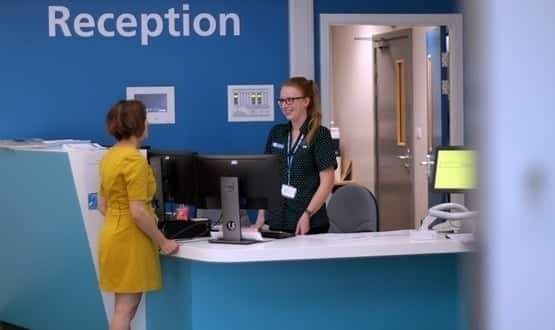Sheffield Teaching Hospitals NHS Foundation Trust has been awarded £67,000 from the Health Foundation’s Advancing Applied Analytics programme to develop new machine learning software for outpatient care.
The PathAnalyse project will use machine learning algorithms to track 32 million datasets containing information about patient arrival times, duration of appointments and length of consultations at the trust’s outpatient departments.
It’s hoped the data, once evaluated, will help create a digital ‘roadmap’ of the different stages of outpatient care, which will support senior staff in their understanding of current processes and their impact on waiting times.
Two outpatient clinics at Sheffield Teaching Hospitals have been selected to demonstrate the technology: the antenatal care department at Jessop Wing and the rheumatology outpatient department.
The project is due to begin later this month.
Dr Steven Wood, clinical scientist at Sheffield Teaching Hospitals NHS Foundation Trust, said: “We are delighted to have been given this opportunity to use our scientific and computing expertise to seek to better understand complex processes within the healthcare system.
“This is the first time an advanced modelling data system of this kind has been used in the NHS.”
Improving the outpatient journey
The PathAnalyse project is one of ten being funded in the latest round of the Health Foundation’s Advanced Applied Analytics programme, and is being run in partnership with researchers from the University of Sheffield’s department of computer science and the National Institute for Health.
It builds on previous collaborative work undertaken by Sheffield Teaching Hospitals’ medical physics team and researchers at the University of Sheffield’s Insigneo Institute for in silico medicine to monitor the patient journey through the outpatient clinic.
Dr Maria-Cruz Villa-Uriol, lecturer in the department of computer science at the University of Sheffield, said: “This project brings together a team of researchers at the University of Sheffield with the scientific computing and informatics team at Sheffield Teaching Hospitals to work on real world solutions to the chain of events that need to happen for patients to receive prompt, efficient outpatient care.
“The new project will draw upon learning from an existing collaboration with Sheffield Teaching Hospitals to support the design of new strategies to optimise patient care within the NHS and generate transferable methodologies for other parts of the health care system, whilst contributing to increasing the analytical capability of the NHS.”
Read more:


18 September 2019 @ 19:35
Elsewhere a product called PathFinder is mentioned https://www.health.org.uk/funding-and-partnerships/programmes/pathanalyse%253A-towards-the-redesign-of-outpatient-services-usi
Was this developed inhouse by the Sheffield team?
Thanks
10 September 2019 @ 20:02
This project appears to be using patient level data. Are patients asked for their consent? If they withhold their consent, is that choice respected?
Please don’t tell me that the data is “sufficiently anonymised” and is therefore “not personal data”. So called “sufficiently anonymised” data is not anonymous; it is not unidentifiable and it IS personal data under GDPR Article 4.